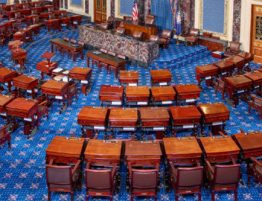
April 10, 2017
In February 2017, the Supreme Court ruled 6-2 in favor of awarding a Mexican-American Texas death row inmate a new sentencing hearing. The reason for the change was that one of the jurors was heard to say during deliberations that the defendant must be guilty because Mexican men “take whatever they want.”
In his dissent of the decision, Justice Samuel Alito warned that intruding into the sanctity of the jury deliberation room for racial bias opens the door for other potential issues. Jury decisions might theoretically be thrown out because one juror was overheard complaining about the defendant’s religion during deliberations. Other justices insisted that racial bias was a much different situation, and 12 days later, the SCOTUS had a second chance to rule on the sanctity of the jury deliberation room.
In early March 2017, the Supreme Court was asked to deliberate the case of another Mexican-American who was accused of sexual assault in Colorado. Once again, jurors were overheard using racial bias in the deliberation room, so the attorney for the defendant insisted that the original jury decision be thrown out for that reason. The eight-member court ruled 5-3 in favor of allowing a retrial.
Once again, Justice Alito passionately dissented when he indicated that the court has ruled that respecting the privacy of the deliberation room is now “in violation of the Constitution.” Justice Clarence Thomas also disagreed, insisting that this ruling creates a new guideline that is unnecessary in the court system of the United States.
The dissenters in both cases argue that the Supreme Court is trying to create a perfect jury system by allowing information revealed after the verdict to alter the course of justice. But those who voted in favor of both decisions claim that racial bias is a much different situation than basing a decision on political or religious preference. The supporting judges feel that these rulings will not lead to increased numbers of retrials based on grounds such as political affiliation or sexual orientation. However, the dissenters question if these two rulings open flood gates that can never be closed.
These cases open the door to challenge racial bias in juries. If you feel that you were unfairly treated by a jury due to your race, contact our law office.










Write a comment: